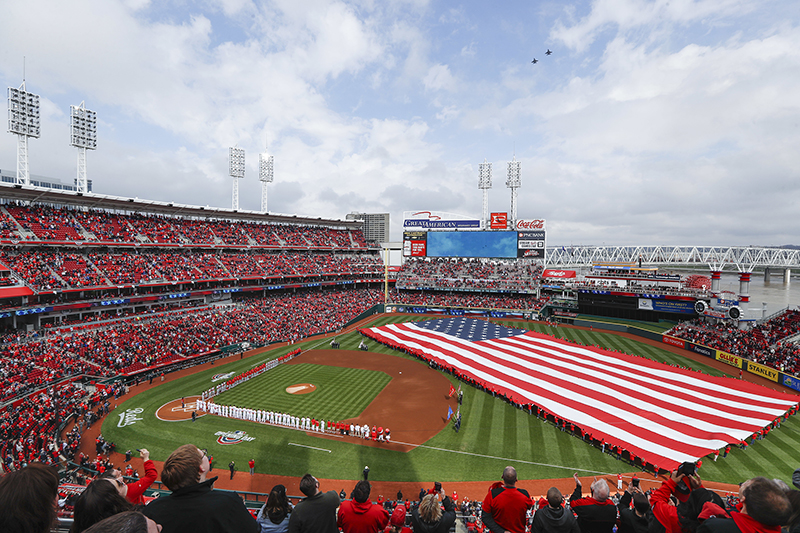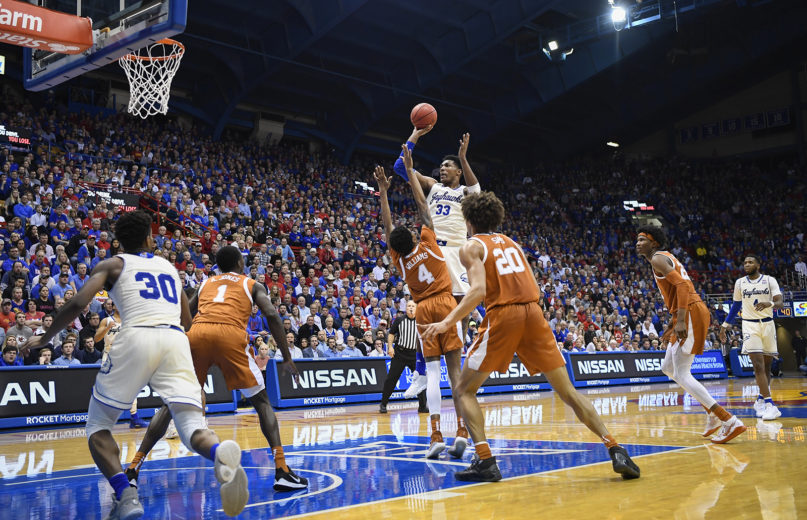(RNS) — More than 90 years ago, on a cold and stormy December night in Kansas, a Christian minister named Charles Sheldon walked into a crowded gymnasium to take in a college basketball game.
Sheldon is best known as the author of “In His Steps,” the 1896 book that popularized the “What Would Jesus Do?” phrase.
But in 1929 Sheldon was not wondering what Jesus would do; he was wondering what his church members were already doing.
As he watched the basketball game play out in front of him, Sheldon began to reflect.
“I couldn’t help wondering, while looking at the big crowd and the athletic ten young men running around,” he wrote, “how many church members would be in the fifty different churches at a prayer meeting on a night like that, and paying a dollar apiece for the privilege of going.”
Sheldon’s question was more like an observation.
When he started his ministry in Kansas 40 years before, basketball had not yet been invented. Now, it was so ingrained in the community that people would brave harsh winter conditions and pay money to sit shoulder to shoulder watching a game — a level of devotion they did not seem as eager to give to the church.
Religious leaders like Sheldon could wonder if their congregants’ priorities were in order. But from Sheldon’s time to the present day, those leaders have had to accommodate themselves to the cultural power of sports in American society.
Sports in America, John Tunis declared in 1928, are “a kind of national religion.”
Scholars can debate whether or not this is true, but sports are certainly like a religion. And much of their influence, as Sheldon observed, comes from their ability to bring people and communities together in shared spaces and shared experiences.
So what happens now that sports — even the Tokyo Olympics — have been canceled?
Can sports still excite our passions? Can sports still provide a shared narrative to follow and shared rituals in which to participate? What will the “religion” of sports look like in the midst of the COVID-19 pandemic?

Spectators stand for the national anthem before an opening day baseball game between the Cincinnati Reds and the Washington Nationals on March 30, 2018, in Cincinnati. The start of the 2020 MLB season has been delayed due to the coronavirus. (AP Photo/John Minchillo)
As a historian, I’m far more comfortable describing the past than predicting the future. But I think we can safely say that the religion-like functions of sports will continue. In some ways, they may even take on heightened importance.
Sports will almost certainly provide a focus of shared lament. Most people understand — or at least say they understand — that games are a minor concern compared to the life-and-death gravity of a pandemic. But that does not mean the loss of sports is inconsequential.
The cancellations of games, seasons and tournaments are painful for athletes and coaches who have devoted their lives to pursue athletic excellence.
That loss matters. It is all right to express grief and sadness for Olympic dreams that have been dashed, for hopes that have vanished, for routines that have been upended, for identities that now seem fragmented.
As those in the sports community express sadness and share in each other’s grief, they can continue to build and strengthen the emotional bonds that give sports so much meaning.
The sports community can also turn to the past.
This has long been essential to the allure of sports: The stories and shared experiences passed down from generation to generation help to sustain its aura of transcendence. And the past may take on even greater significance now. There’s a reason that on March 12, soon after the NCAA canceled its winter and spring tournaments, “ESPN Classic” was briefly trending on Twitter.
We can expect that sharing old highlights on social media, watching historic games and reading about past seasons on sports message boards and websites will proliferate. Perhaps in the months to come, some sports fans and participants will gain an even greater sense of connection to the history of their favorite teams and leagues.
And then, too, there is hope for the future — the promise that one day, sports will return to our lives.
Of course, the return of sports is not the important thing.
The important thing is that at some point the pandemic will subside, hospitals will no longer be in danger of being overcrowded and people will have less of a chance of being exposed to the novel coronavirus.
The return of sports won’t solve any of those problems. But it will signify that those problems have been solved. And so sports fans can dream of what might happen in the future; they can hope for the return of the games they love.
Perhaps we can also hope that the power of sports might be diminished.
The trend Charles Sheldon noticed in 1929 — that sports had become more important in many people’s lives than religious faith — is truer today in our ESPN age than it was back then.
Will those of us who love sports take this moment to reflect? Will we affirm the good in sports while also pausing to consider the ways that sports can warp and distort our priorities — from our time and money to our willingness to overlook ethical concerns?
Will we make an effort to change our patterns of behavior and also the systems and structures that we have built up over the years?
The historian in me is not very optimistic. But at least in my own life, I’m going to try.
With my fellow sports fans, I’ll be lamenting lost games and dreams. I’ll be looking back at old seasons and remembering players from the past. And I’ll be envisioning the moments of joy and celebration to come when sports do return.
But I’ll also be reminding myself — once again, and louder this time — that while sports are important, they should not be my ultimate concern.
(Paul Putz is assistant director of the sports ministry program at Baylor’s Truett Seminary. Follow him on Twitter @p_emory. The views expressed in this commentary do not necessarily reflect those of Religion News Service.)





